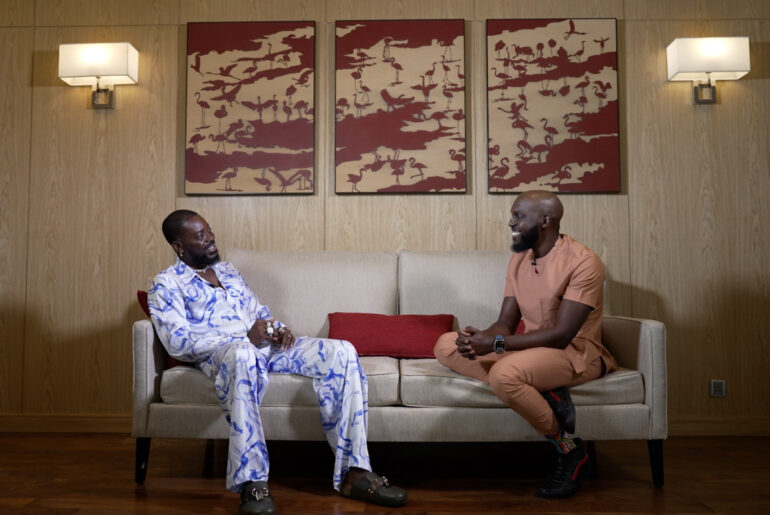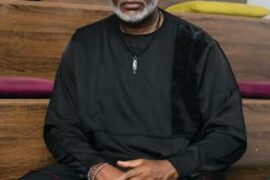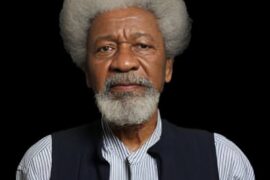In the latest episode of African Voices Changemakers, CNN’s Larry Madowo sits down with Nigerian Afropop singer Adekunle Gold for his first in-depth interview about living with sickle cell disease and how it has inspired his new life mission.
The award-winning singer made waves internationally when his debut album ‘Gold’ shot up to number seven on the Billboard World Charts. In 2022, fans were shocked to learn from his song ‘Five Star’ that the Nigerian crooner has been secretly battling sickle cell disease.
He tells Madowo, “I just really got the courage to come out and speak about it. You know, a lot of people can’t share the story like I can, but I was writing the song ‘Five Star’ and I was reflecting on my life, the journey, how I’m a miracle.”
Sickle cell disease is an inherited genetic blood disorder that causes abnormally shaped red blood cells. According to the World Health Organisation, more than 66% of those affected by sickle cell disease live on the continent of Africa. The disease can cause a variety of health problems ranging from severe pain and anaemia to other serious complications including death.
Gold discusses some of the challenges he had to overcome living with the disease, and what changes he had to undertake to stay healthy, “All my life I knew since I was a child I couldn’t do certain things […] So what happened to me was I have pains in my joints, you know, from being in the rain, for example, doing strenuous activities as a child that I was not supposed to do.”
He continues, “I always knew that I didn’t want this thing to define me. So, if it means that I needed to exercise more, you know, take my drugs more, you know, eat well, rest well, take more water because I need to do that always.”
The Nigerian star explained how, “Just speaking up about it on socials, I realised that people are, a lot of people are ignorant about it.” In a bid to raise awareness and support those living with the disease, the singer teamed up with the Sickle Cell Advocacy and Management initiative to host a medical outreach at Akerele Primary Healthcare Centre in Surulere, Lagos state.
That same day, the musician visited the National Sickle Cell Centre, a healthcare hub for those with the disease. Gold toured the facility, meeting patients and fellow advocates. The 37-year-old superstar says the event helped him fully grasp what is at stake for sickle cell patients in the country, “Listen, people don’t have money, bro, to take drugs to check their BP to check their children, you know. […] People can’t afford like to buy folic acid and folic acid is to me like this, the smallest of things that you should be able to and people can’t even eat in the first place.”
“I want everybody to, first of all be aware of it to know how to treat people that have it. You know, I want people to, to understand that it is important to check, check your genotype,” says the Afropop star about speaking public.
Nearly a decade after his first hit ‘Sade’, he dramatically shifted his personal style and the overall sound of his music. The superstar talks about what motivated this evolution, “I think I’m just obsessed with growth. Like I just, um, I always wanna do different things, like I get bored easily with like things”.
When he is not championing Sickle Cell awareness, Gold is making new music, working on finishing some recently started records, ““If I think of something, I wanna do it. So, it feels like a new era for me, you know, I’ve called myself all sorts of names and I’m in my Big Fish era. […], it’s a new era is new sound, is new energy, new vibe, new knowledge as well. So, yeah, and every time that I feel like I’m new again, I just wanna embody it.”
Gold continues to push the envelope with his music, telling CNN, “My goal has always been to be timeless. […] And to stay timeless, you have to find new ways, you know, to keep it fresh.”
The Nigerian star is also pushing for more support for those living with sickle cell in Africa and beyond. He concludes, “I’m just going to like to lend my voice to this, put my energy behind it because this is something that I’m really passionate about. It’s something that I live with and if by way of privilege I can regulate my health because of access that I have, I want people to have it too.”




